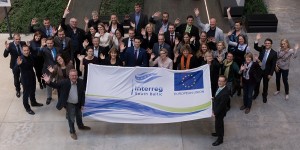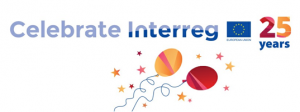On 23rd September 2015 the European Commission adopted the new Interreg South Baltic Programme 2014-2020 between the coastal regions of Denmark, Germany, Lithuania, Poland and Sweden. The programme is worth €102 million, with €83 million coming from the European Regional Development Fund.
Commissioner for Regional Policy Corina Crețu said:
“Our Interreg programmes are tangible examples of how the EU is working to help citizens address common challenges and tap into shared potential in key growth areas, like here in sustainable tourism and innovation. The programme adopted today means that the coastal regions of Denmark, Germany, Lithuania, Poland and Sweden can now step up a gear in their integration.”
The programme focuses on environmental measures, with investments to reduce pollutions discharges into the Baltic Sea. It will also support the protection of natural and cultural heritage in order to develop a sustainable tourism activity in the region.
Furthermore, the programme will support the development and internationalization of SMEs and cross border labour mobility. Finally, it will contribute to making transport services in the South Baltic region more environment-friendly, while improving connectivity in the region. Actions in these areas will be complemented by efforts to foster the cooperation capacity of local actors through participation in cross border networks.
Background
The area covered by this programme “Interreg V-A South Baltic” comprises the following territories on the Baltic Sea coast: in Denmark the coastal regions of Sjælland and the island of Bornholm, in Germany the coastal regions of Mecklenburg-Vorpommern, the coastal regions of Poland and Lithuania, and coastal regions of Southern Sweden.
Funding breakdown of the five priorities of the programme:
- Strengthening the international dimension and innovation capacity of the South Baltic blue and green economy – EU-funding: €10 million.
- Exploiting the environmental and cultural potential of the South Baltic area for the blue and green growth – EU-funding: €39.8 million.
- Improving cross border connectivity – EU-funding: €15.8 million.
- Boosting human resource capacities for the area’s blue and green economy – EU-funding: €8.3 million. This priority will support, for example, cross border training programmes and internships and increased transfer of knowledge and of experiences.
- Improving the cooperation capacity of local South Baltic area actors through participation in cross border networks – EU-funding: €4.1 million.
An additional €5 million will be provided for technical assistance. The EU-funding of €82.98 million will be complemented by €19.95 million co-financing from national sources. The total volume of the programme is €102.93 million.
Source: http://ec.europa.eu/commission/2014-2019/cretu/announcements/more-eu100-million-boost-cooperation-across-maritime-borders-denmark-germany-lithuania-poland-and_en
 On 1 and 2 October 2015 in Gdańsk, the Members of the Monitoring Committee for the South Baltic Programme 2014-2020 during their first meeting approved the timeframe for the first call for proposals. Applicants can submit their applications under all the specific objectives of the Programme between 2 November and 18 December 2015.
On 1 and 2 October 2015 in Gdańsk, the Members of the Monitoring Committee for the South Baltic Programme 2014-2020 during their first meeting approved the timeframe for the first call for proposals. Applicants can submit their applications under all the specific objectives of the Programme between 2 November and 18 December 2015.